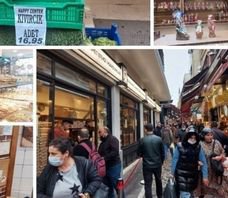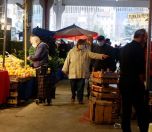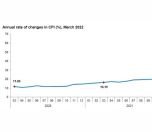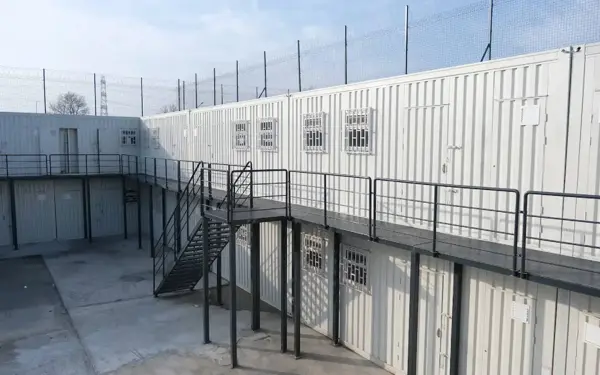Click to read the article in Turkish
Speaking to the İstanbulites amid increasing costs of living and mounting difficulties in making ends meet, Ayşegül Özbek, in her news article on bianet today, recounted her encounter with a woman who told her, "Don't ask me about the price hikes for nothing, don't stir up my troubles".
While shopkeepers in neighborhoods such as Kurtuluş and Eminönü are now "embarrassed to tell customers the prices", people have long been desperate in the face of mounting prices and inflation.
When we ask economist Prof. Mustafa Durmuş about the inflation, he also points at the market, just like in Özbek's news.
As a matter of fact, the Turkish Statistical Institute (TurkStat) shared the official statistics on consumer prices two days ago and announced that the annual consumer inflation rate was over 61 percent in March. The Inflation Research Group (ENAG), on the other hand, shared its alternative statistics again and stated that the inflation rate stood over 142 percent.
According to Prof. Mustada Durmuş, TurkStat, producing official statistics on Turkey, "has lost its credibility". He says, "I say this as a person who knows the market, lives in this country, goes out on the street, does shopping, listens to and knows the people and shopkeepers".
Durmuş notes that the felt inflation rate is well over 60 percent in Turkey. In fact, it is a rather burning issue on everyone's agenda and budget that prices change not only over months, but in a matter of days.
Turkey ranks 7th in inflation
"In any case, we are faced with a very high rate even if the annual inflation rate is 61 percent," says Prof. Durmuş. Reminding us that the last quarterly inflation rate stands at 23 percent, he protests, "Can you imagine?"
As underlined by the economist, "this situation makes especially fixed income earners, pensioners, laborers, working class and even shopkeepers and the middle class, who were once considered to be in a more comfortable position than the poor, poorer and poorer".
Comparing the inflation rate of Turkey with those of other countries, Durmuş notes that Turkey tops the lists by far.
As a matter of fact, Turkey has the 7th highest official inflation rate in the world after Venezuela (340 percent), Sudan (259 percent), Lebanon (214), Syria (139) Zimbabwe (72) and Suriname (61.50 percent).
Referring further to the inflation rates across the world, Prof. Mustafa Durmuş says, "In the US, we are talking about an inflation rate of around 7 percent. In Europe, it stands around 5 percent. It is already below 10 percent in several countries. If it is officially announced as 61 percent in Turkey, doesn't it have to have domestic reasons rather than global ones?"
The economist then shares the following observations:
Okay, there is a war next door, but this is not the cause of the inflation. Some expansionist financial and monetary policies have been put into effect all across the world during the pandemic. There were especially efforts to support economies by printing money. This has neared 10 percent of the GDPs all across the world. So, such expansionist policies emerge as the main reason behind the inflation in the US and Europe. [...] But when Turkey is considered, it is seen that the support offered in Turkey is so limited... It is below 2 percent of the GDP. It is not possible for this to be the source of the inflation in the country.
'Inflation caused by increasing costs'
Against this background, Durmuş comments that the inflation in Turkey is cost-related, which is itself related to the foreign exchange.
Drawing attention to the increasing USD exchange rate and recalling that it has increased from 7.5 TRY to 14 TRY in a year, he says:
"This question is important here: What has increased the exchange rate? The biggest factor is the interest rate policy pursued by the government. They lowered the policy rate by an insistent and obsessive discourse of 'Interest rate is the cause, inflation is the effect'.
"When the policy rate started to drop, the Turkish Lira (TRY) also started to lose value. Dollarization has significantly increased.
"So, people started to move away from the TRY and bought dollars. The price of the dollar has increased. That being the case, costs have multiplied. Therefore, I consider that inflation is cost-related in Turkey".
'It will keep increasing'
Economist Prof. Mustafa Durmuş also draws attention to the gap between the consumer and producer inflation rates in Turkey:
"The gap has almost increased to 55 percentage points now. So, costs faced by producers have not yet been reflected in the prices. In the upcoming process, producers will have to increase the prices. If they don't, they will find themselves in a tough situation and go bankrupt".
According to Durmuş, the real responsible parties for the economic crisis and inflation are "the political power holders and the government bloc".
He briefly adds:
"The economic policy of the government, its interest rate policy, foreign exchange policy, its silence in the face of melting wages and preventing rich people's money in guaranteed deposits from melting...
"What is done is actually a money transfer from the poor to the rich. The government wanted to prevent dolarization and make the TRY more appealing. As a way of making TRY more appealing, it has come up with the FX-indexed deposits. So, a wealth transfer from the poor to the rich...
"While inflation seems to hit all segments of society, the price is, in fact, paid by the working class and laborers. In the face of constant price increases, the living standards of fixed income earners have been decreased. Life has become more expensive, especially for them.
How much longer like this?
"Moreover, as the world is going through a war in the meantime, another serious dynamic has emerged, especially in supply of food and energy.
So inflation will not be temporary, but permanent. High inflation is awaiting us. If no change occurs in the paradigm of the government and no change is made in the economic policies, it will lead up to hyperinflation. This is what I fear.
'Government's statements are unreal'
Commenting on the government's statements indicating that inflation will fall in late 2022, Durmuş briefly notes:
"Since none of these statements was materialized in the past, there is no sense in such an expectation. We are faced with political power holders who have been clearly opting for the capital and the rich in the interest rate policy and in the other economic policies".
Durmuş says that "the government is not troubled with inflation". He adds: "So, they are not aware of what people have been going through. They do not understand what people say. Everyone is unhappy".
'Growth is an illusion'
Referring to the 11-percent official growth rate of Turkey in 2021 announced on February 28, Prof. Mustafa Durmuş concludes as follows:
"Growth is indeed an illusion. Because you make an economy grow by 11 percent. But in the meantime, the labor's share in the GDP falls by 3 percent. This is not something explainable. Because considering its results, laborers are the ones who create values. But their share drops. Purchasing power drops, poverty increases... Moreover, people's indebtedness increases. But, what is growth? Growth means the welfare of people". (HA/SD)





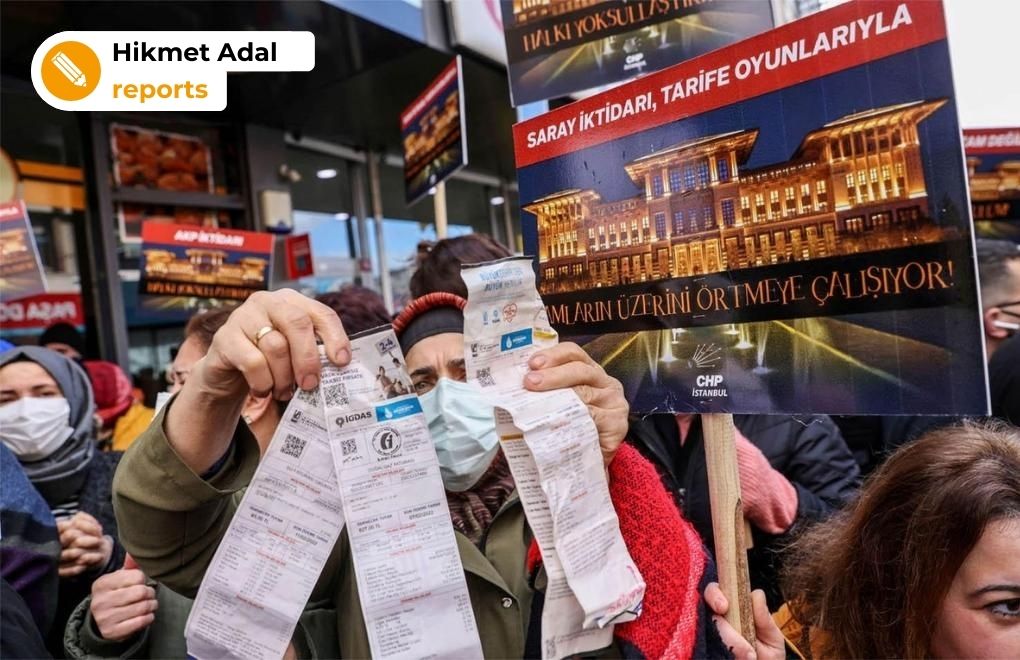
.jpg)

